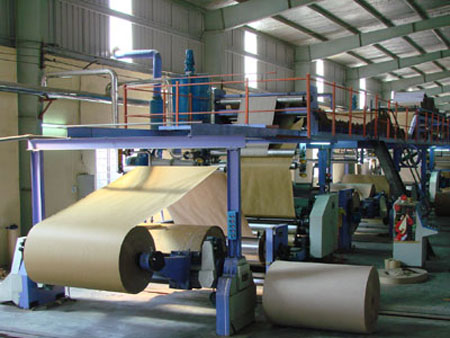The sharp dollar price increase, the input material price increases and foreseeable electricity and petroleum price rises are threatening businesses’ operations. Enterprises now have to recalculate expenses in order to reduce production costs, increase competitiveness and optimize profit.

Though businesses have anticipated dollar and input material price increases, they still find it difficult to set up their business plans for 2011.
Pham Van Thien, Deputy General Director of Bibica, a sweets producer, said that the dong/dollar exchange rate adjustment will significantly affect the company’s operation because it now has to import 20 percent of materials needed. Besides, domestic suppliers, who also use imported materials and have to pay more for imported materials due to the dollar price increase, have raised the prices of materials sold to Bibica by 5-8 percent.
Thien said Bibica is negotiating with the suppliers and trying to keep the prices unchanged for some more months. However, he admitted that it would be impossible to keep the prices stable if the electricity price increases as of early March as scheduled. The electricity bill makes up five percent of the total production costs.
Thien said that in order to endure the difficulties, the company has to apply several measures to reduce production costs and optimize profit. Specifically, the company has been trying to arrange production shifts in non-peak hours, rationalize the production lines and install modern equipments which reduce power consumption.
Do Duy Thai, General Director of Viet Steel Company, complained that steel manufacturers now have to face many difficulties, from high dollar prices to electricity and petroleum price increases. The expenses on electricity alone now make up more than eight percent of the production costs. Therefore, the company has to optimize production costs.
Viet Steel has spent $500 million importing modern equipments in order to minimize power consumption. Besides, in order to have the best production costs, the company organizes bids to choose imported materials.
According to Duong Ngoc Minh, General Director of Hung Vuong Company, the expenses on electricity are always very high in seafood companies. For example Hung Vuong, has to pay five billion dong a month for electricity, and if the electricity price increases by 18 percent as slated for early March, the company will have to pay an addition one billion dong for electricity consumption.
Minh said that in order to minimize power consumption, the company has no other choice than changing its production equipment. Besides, the company has been trying to undertake all phases of production, from aquaculture to feed processing, which reduces production costs by 25 percent. Hung Vuong is also considering restructuring the production and increasing the added value in products in order to obtain higher export values.
Despite the increases in input material prices, most of manufacturers say they will need to think carefully about whether to raise sale prices, because the price increases may make the products unsellable.
Cao Tien Vi, Chair of the Saigon Paper Corporation, said that in paper production, 50 percent of materials needed must be fed with imports, while the expenses on electricity make up 10 percent of the production costs. Therefore, the electricity and dollar price increases will force him to raise sale prices. However, at present, the company just focuses on maintaining production and ensuring jobs for 1300 workers and does not dare set profit goals.
“I hope that everything will be better in the second half of the year, when the State stabilizes the macro economy,” he said.
Meanwhile, retailers said that they are trying to negotiate with producers on a more reasonable solution on profit sharing, or they will accept low profit in order to keep the best prices for buyers. Nguyen Thanh Nhan, Deputy General Director of Saigon Co-op, said that some suppliers of clothes and household goods are planning to raise prices, but Saigon Co-op Mart has not accepted the proposals and it will persuade the suppliers to set the most reasonable price levels.
C. V
Source:http://english.vietnamnet.vn
880 Lượt xem
0 bình luận
1847 Lượt xem
0 bình luận
880 Lượt xem
0 bình luận
2970 Lượt xem
0 bình luận
42739 Lượt xem
0 bình luận
- Thông tin thị trường
- Hoạt động xã hội
- Hoạt động công ty
- Hành trình 20 năm
- Tin Tức Công Ty
- Điều khoản sử dụng









